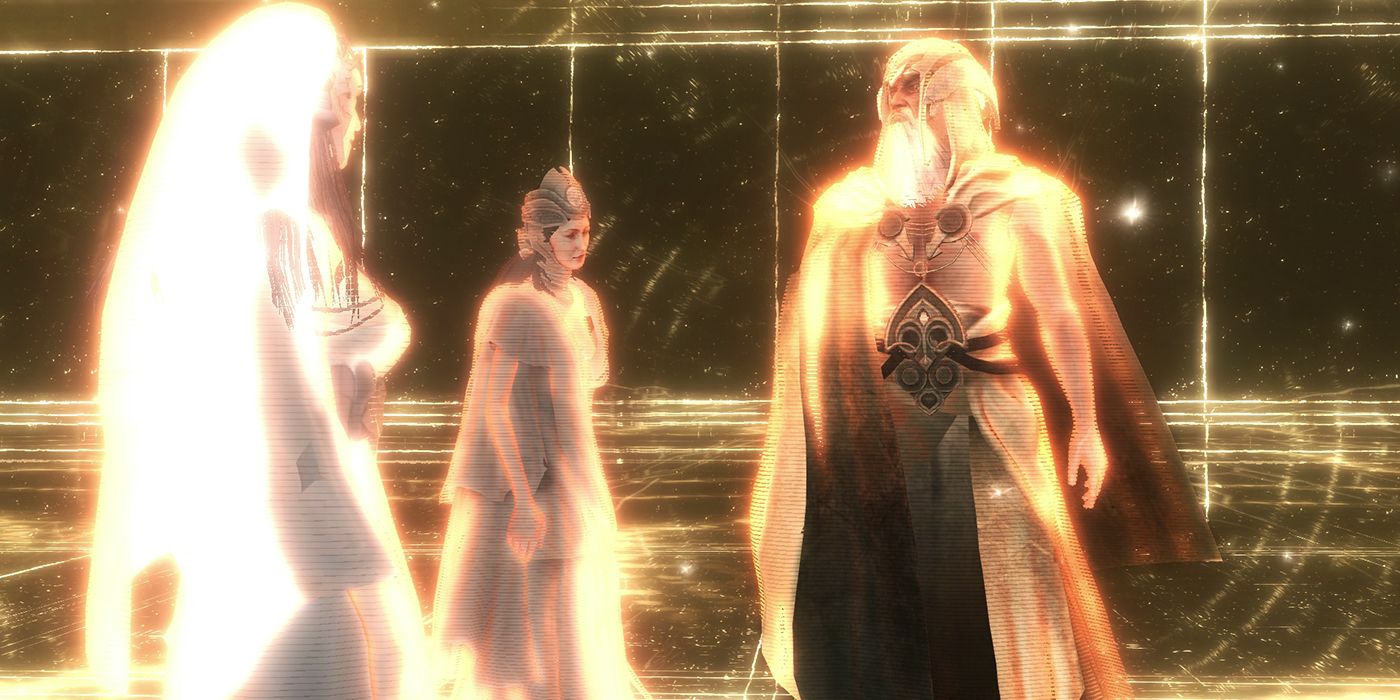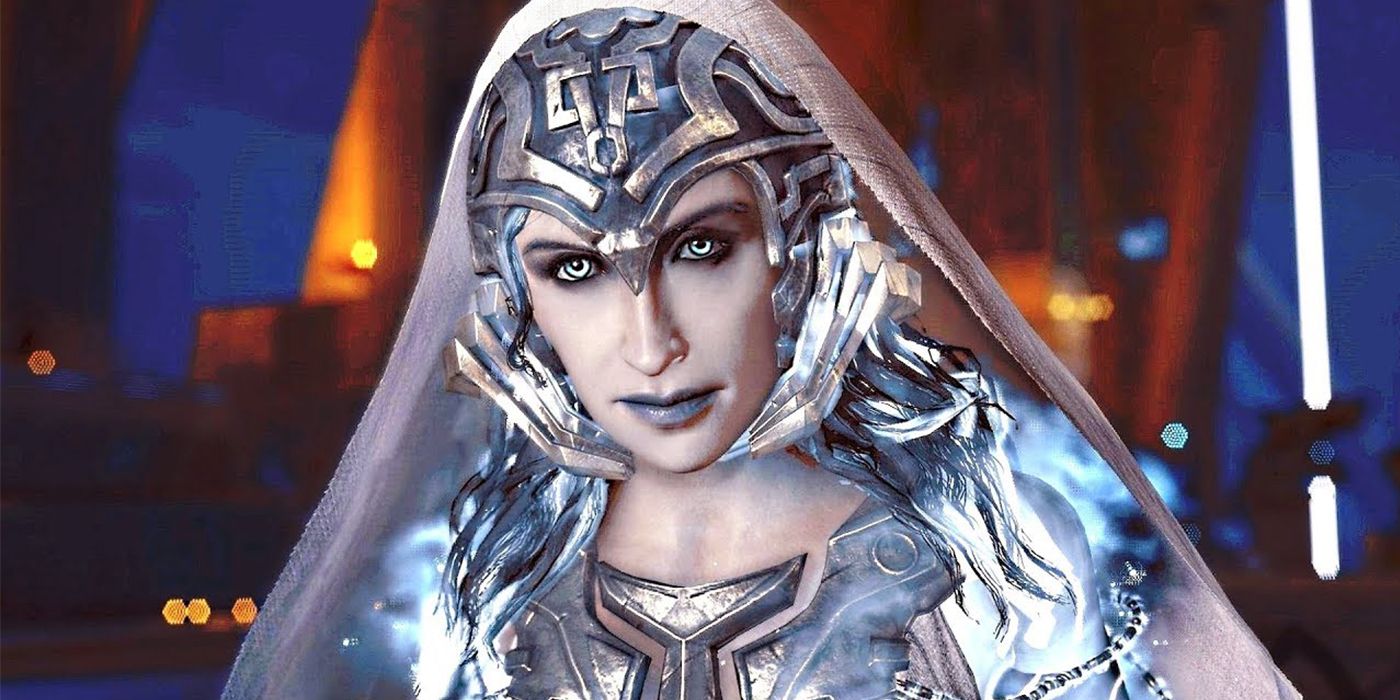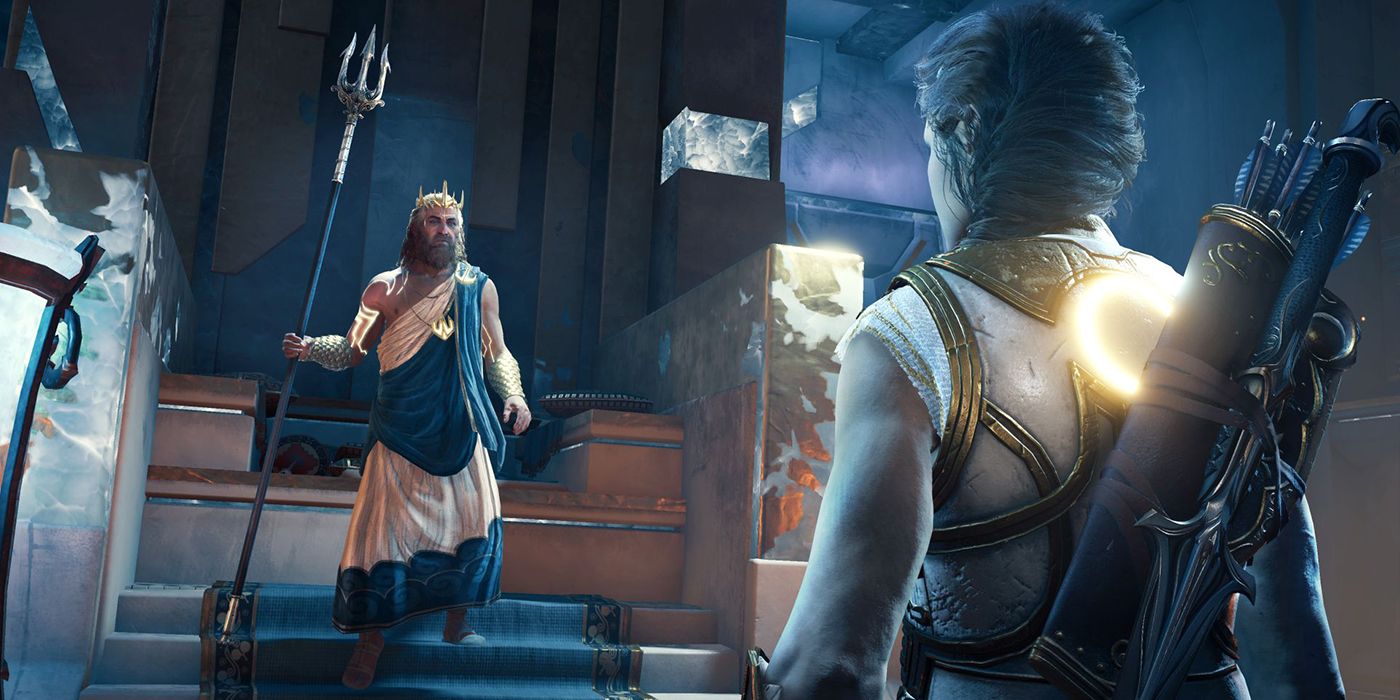Speculation and fan theories are quickly mounting around the mysterious upcoming Assassin's Creed title, rumored to be called Assassin's Creed Ragnarok. The last Assassin's Creed entry gave a few hints as to where the modern-day storyline would be heading next and how the Pieces of Eden would tie in, but little more has been revealed.
Current speculation suggests that Assassin's Creed Ragnarok will be a Viking-themed title, with players entering the world and taking on a new character during the golden age of the Vikings. Whether or not that ends up being true, there's one aspect of the next Assassin's Creed game already guaranteed: one way or another, its plot will involve the Isu and First Civilization.
So, while discussing the historical themes of the game remains difficult, fans can at least brush up on their knowledge of the Isu throughout AC lore. Plus, there's already speculation over which Isu artifacts, the Pieces of Eden, will turn up in AC Ragnarok, but what about the Isu themselves?
Overview
"The Isu" and "First Civilization" are two names for the same thing, along with "Those Who Came Before" and the formal Abstergo Industries designation, "homo sapiens divinus." The Isu are an ancient yet highly advanced humanoid species that ruled the Earth roughly 77,000 years ago (during the eponymous era). Not only did they create the Pieces of Eden that are so central to the plot of each Assassin's Creed game, but they're also responsible for the creation of the human race.
However, the Isu's dominion didn't last; their population alongside the humans' was all but wiped out during an event known as the Great Catastrophe. The event effectively marked the end of the decade-long Human-Isu War, wherein the Isu's human creations rebelled against their "gods" and overlords. Humans sought to free themselves from servitude to the Isu, led by two hybrid beings called Adam and Eve, and while the population of both species was reduced almost to the point of extinction, humans were the ones able to bounce back.
After the Great Catastrophe, the Isu dwindled until they were considered extinct (though there were exceptions, as Assassin's Creed proved over the years). Despite their civilization's collapse, the Isu endured through their artifacts and their legacy, which saw them live on through millennia of myths and legends. The Isu's artifacts, the Pieces of Eden, became pivotal to the conflict of Templars and Assassins, both of whom sought to take control of the pieces for the sake of humanity's future.
History
While there's plenty to tell about the actions of the First Civilization during its dominion of Earth, the origins of the Isu are still a mystery. The Isu Minerva would only say that they "came before," humanity, creating homo sapiens to be a docile workforce created in their own image. Curiously, homo neanderthalensis (otherwise known as neanderthals, or "cavemen") was also a creation of the Isu, used for militaristic purposes instead.
Minerva claimed that humanity's adaptability and survival instincts were a product of Isu engineering, as they were built to withstand the harsh environments of Earth, but Juno--another Isu and the enemy of Assassin Desmond Miles--said that humans weren't supposed to be "wise." Rather, they were supposed to be obedient in all things with no wisdom of their own to rely upon, proving that humans evolved beyond what the Isu made them to be. The Isu controlled humanity through the invention of various technologies, which humans later nicknamed "Pieces of Eden." Certain Pieces are believed to have mind-controlling abilities, although some remaining humans are born without the necessary neurotransmitters, making them immune to the Pieces' mind control power.
Then came the Great Catastrophe, a coronal mass ejection from the sun, and while the Isu were technologically advanced, they'd been distracted by their war with the humans. Three Isu, Minerva, the aforementioned antagonist Juno, and Jupiter attempted to invent some way to protect Earth's surface in underground temples spread around the world. Despite their best efforts, nothing would be ready fast enough to prevent mass extinction from the catastrophe, leaving Minerva to plant messages for future humans throughout time in the hopes of saving them from a future catastrophe.
However, the Isu also lived on in human mythology, possibly including the long-studied Norse mythology of the Vikings.
Legacy
While it took time for humanity (specifically, the Templars and Assassins) to become aware of both the Isu's existence and their true nature, it's obvious that the Isu made their mark on human culture. Specifically, the Isu likely directly influenced various polytheistic human religions, as many of their names suggest: "Minerva," "Juno," and "Jupiter" are all the names of Roman gods, and there are even more in Assassin's Creed: Origins and Odyssey when it becomes apparent that the Egyptian and Greek gods are actually Isu.
Knowing that it seems like a natural continuation of the Isu storyline--if Assassin's Creed Ragnarok really is the next in the series--could involve the Isu as the various Norse gods as well. After all, the legend of Ragnarok foretells the end of the world as the two pantheons of Norse gods, the Aesir and Vanir, battle each other to the death. Since it would make a lot of sense for yet another ancient polytheistic religion to be Isu, it'd also make a lot of sense for the protagonist of Ragnarok, Jora, to be involved in protecting Earth from such a cataclysmic event.
Norse religion involves deities such as Thor, Odin, Loki, Frigg, and Hel, deities who have become quite popular in their own respect through their Marvel Comics incarnations. Whatever Pieces of Eden are involved in Ragnarok--and it's also been speculation that there could very well be more than one Piece of Eden making an appearance--it'd certainly be interesting to see both the various Pieces and their Isu inventors hastening the Assassin's Creed version of Ragnarok. And perhaps, since the Assassin's Creed: Odyssey DLC Fate of Atlantis featured either Kassandra or Alexios meeting Isu "gods" like Hades and Athena, there will even be a similar scenario for the Norse pantheon.
Whatever the case, clearly there are plenty of opportunities for the Isu to make an appearance in a Viking-era setting. Hopefully, Ubisoft will finally announce its next Assassin's Creed title soon, and fans will get a sense of just what to expect from the next game.
Assassin's Creed Ragnarok is rumored to be currently in development.



